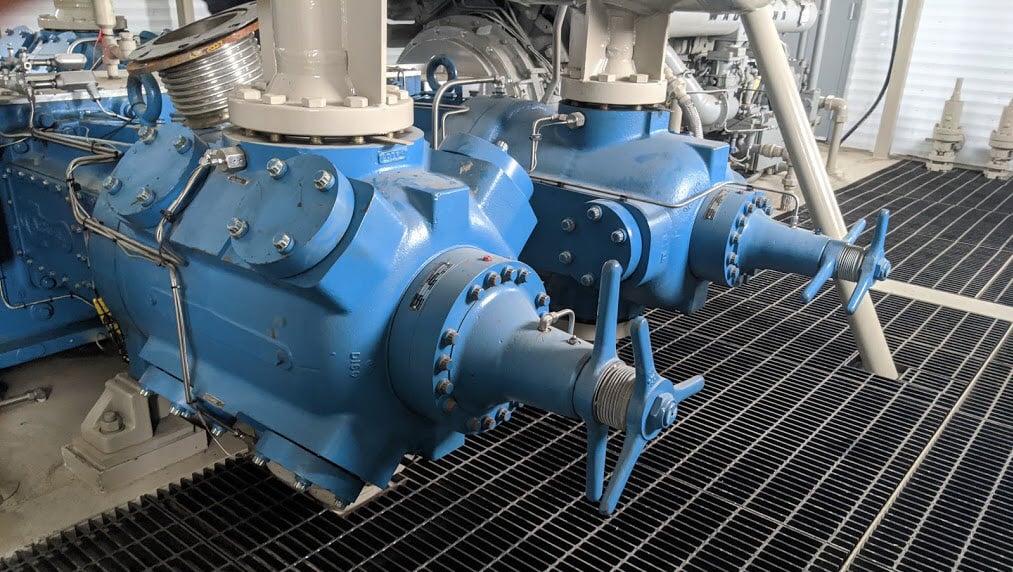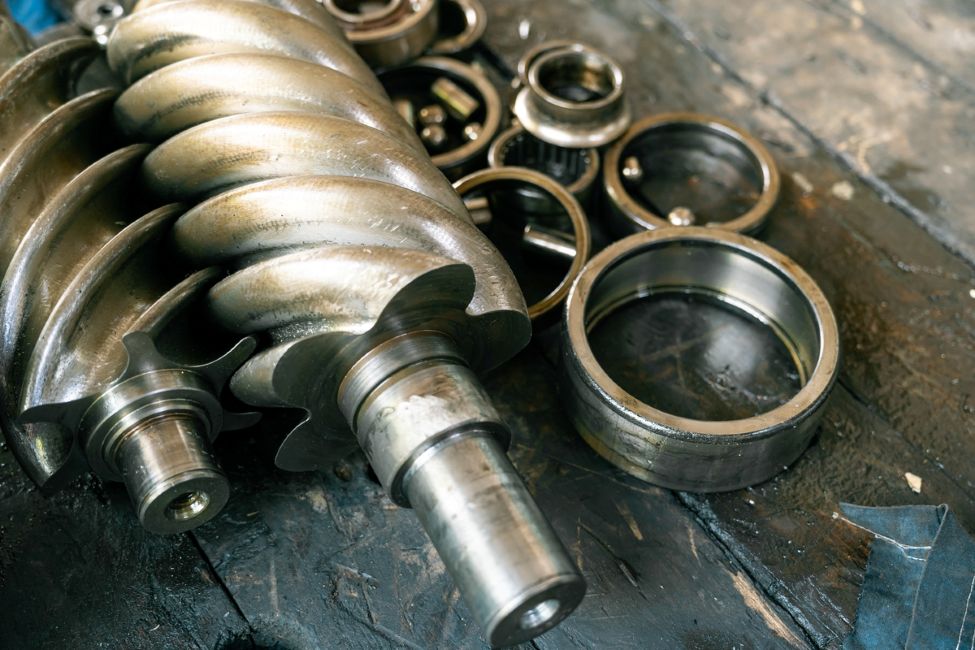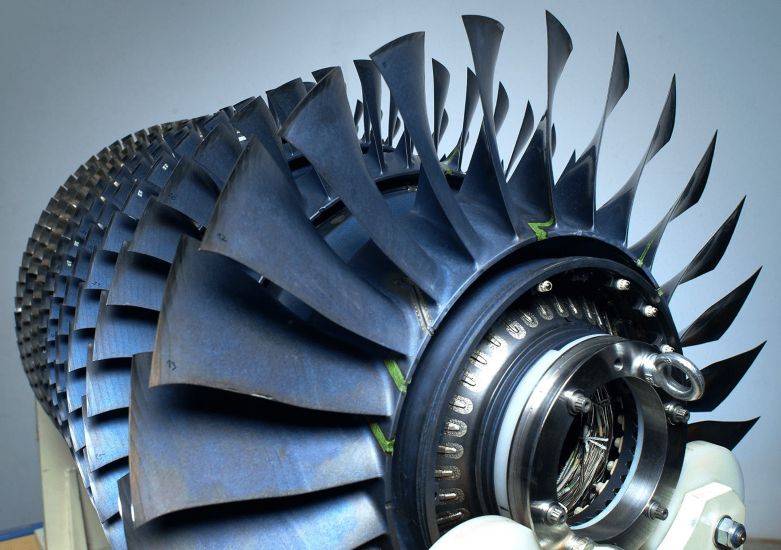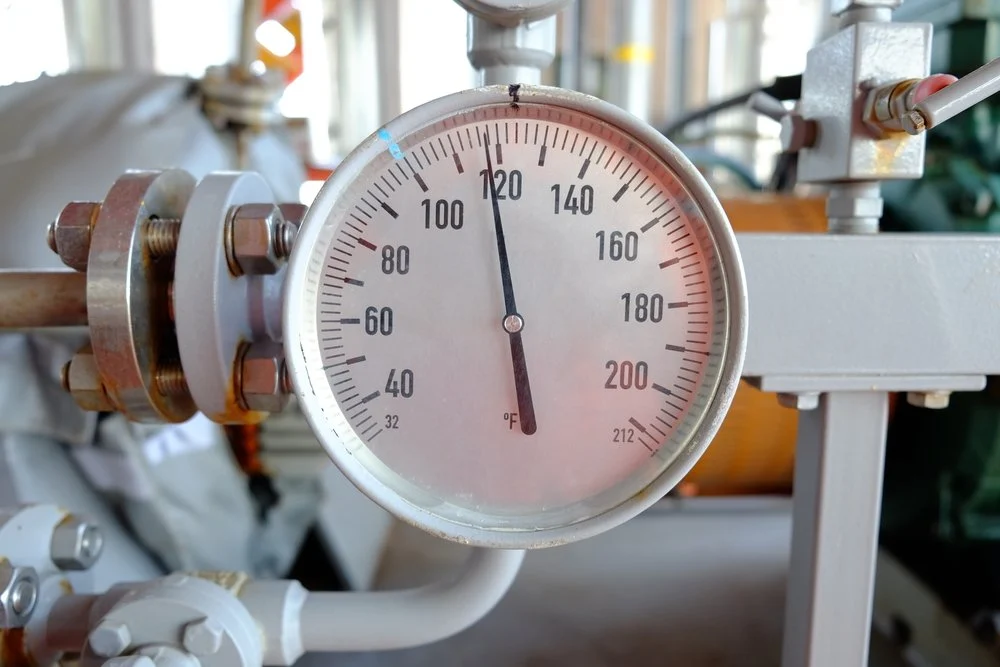Compressor Filter Replacement Interval
- Home
- Compressor Filter Replacement Interval

Compressors are widely used in many industries for generating compressed air and supplying the necessary power for various machines and equipment. One of the most vital components that significantly impacts a compressor’s performance and lifespan is its filters. These filters purify the incoming air and prevent particles and contaminants from entering the compressor. In this article, we’ll examine the timing of compressor filter replacement and its importance. Stay with Kamsan Iran until the end.
Why Are Compressor Filters Important?
Compressor filters act as the first line of defense against environmental contaminants. They block dust, moisture, oil, and other impurities from entering the system. Without proper filtration, these particles can reach the internal components, cause damage to sensitive parts, reduce compressor efficiency, and increase energy consumption.
Why Should Filters Be Replaced on Time?
- Improved Compressor Efficiency: When filters become dirty or clogged, airflow is restricted. This leads the compressor to work harder, increasing energy usage.
- Extended Compressor Lifespan: Dirty filters can accelerate wear on internal parts, shortening the life of the unit. Timely replacement helps avoid this.
- Reduced Contamination Damage: Dust and debris can damage critical parts like rings, cylinders, and valves, often resulting in costly repairs.
When Should Compressor Filters Be Replaced?
The replacement schedule depends on several factors. In general, filters should be checked and replaced at regular intervals. Key factors include:
- Type of Compressor: Screw, piston, or other types of compressors may use different filters with different lifespans. Larger industrial models often need more frequent filter changes.
- Operating Environment: In dusty or humid environments, filters get dirty more quickly. In such cases, replacing filters every 3 to 6 months is advisable.
- Compressor Usage: For compressors that run continuously, filters should be inspected regularly. As a rule of thumb, filters should be replaced every 3,000 working hours for 24/7 operation.
- Manufacturer Recommendations: Always follow the specific guidelines provided in the user manual for filter replacement timing.
Signs That It’s Time to Replace the Filters
- Increased Energy Consumption: A sudden rise in energy usage may signal clogged filters.
- Reduced Air Pressure: Inability to maintain normal pressure levels can point to filter blockage.
- Unusual Noises: Strained or loud operation can be caused by restricted airflow.
- Overheating: A rise in compressor temperature may indicate airflow issues due to blocked filters.
How to Replace Compressor Filters
Replacing compressor filters is simple, but you should follow these steps for safe and effective replacement:
- Turn Off the Compressor: Shut off power and disconnect air supply.
- Open Filter Housing: Locate and open the filter compartment.
- Replace the Filter: Carefully remove the old filter and install a new one.
- Reassemble and Restart: Close the housing and power the compressor back on.
Buy Compressors and Filters from Kamsan Iran
Regular filter replacement is essential for maintaining compressor performance and longevity. Based on your compressor type, work environment, and usage level, it’s important to replace filters at the right intervals. Timely filter changes not only ensure optimal performance but also prevent costly breakdowns and repairs.
For expert consultation, product info, and service updates, feel free to follow Kamsan Iran on Instagram and explore our full range of compressors and accessories.
**Share this article**
Comments







